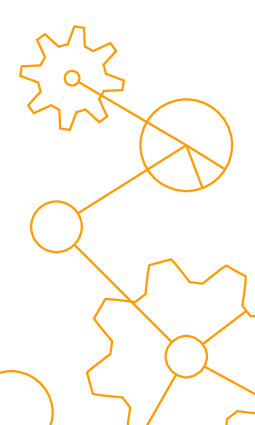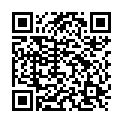|
|
|
| Module code: WIMASc215 |
|
|
2V+2U (4 hours per week) |
|
6 |
| Semester: 2 |
| Mandatory course: yes |
Language of instruction:
English/German |
Assessment:
Written exam (for Quality Management), class presentation (written composition and presentation) (for Cost Management) (1:1)
[updated 18.12.2018]
|
WIMASc215 (P450-0134, P450-0135) Industrial Engineering, Master, ASPO 01.10.2014
, semester 2, mandatory course
|
60 class hours (= 45 clock hours) over a 15-week period.
The total student study time is 180 hours (equivalent to 6 ECTS credits).
There are therefore 135 hours available for class preparation and follow-up work and exam preparation.
|
Recommended prerequisites (modules):
WIMASc125 Statistical Methods Put into Practice / Information and Communication Technology
WIMASc145 Manufacturing Technologies
WIMAScWPF-W6 Operations Management
[updated 10.02.2020]
|
Recommended as prerequisite for:
|
Module coordinator:
Prof. Dr. Christoph Berger |
Lecturer:
Prof. Dr. Stefan Georg
Prof. Dr.-Ing. Christian Köhler
[updated 10.02.2020]
|
Learning outcomes:
Quality Management:
After successfully completing this module students will:
_ have an overview of the importance of quality as a competitive and cost factor.
_ be able to apply the underlying standards (ISO 9000 ff; TS 16949.) in a targeted manner.
_ be able to build a basic QMS and design core and support processes in accordance with standards.
_ have mastered the current techniques and instruments for efficient process documentation (e.g. VISIO; ARIS, ...).
_ have practiced auditor techniques and can prepare internal and external audits.
_ be able to transfer their technical know-how to other management systems (environmental protection, occupational safety, etc.).
_ be able to describe the differences in the requirements of different industries (automotive, food, pharmaceutical industry) in a qualified way.
Cost Management:
After successfully completing this module students will:
_ be familiar with the problems of classical cost accounting and the tasks and objectives of cost management that can be derived from them.
_ have mastered the methodology of fixed cost management and can transfer it to case studies.
_ have mastered the structure of process cost management and target cost management and can implement both methods.
_ know the structure of a product life cycle calculation and can distinguish it from investment calculations.
[updated 18.12.2018]
|
Module content:
Quality Management:
1. Basics
2. Product liability
3. Basic standards (ISO 9000, TS 16949)
4. Developing a quality management system
5. Q process design and documentation
6. Process documentation software
7. Auditing and auditing techniques
8. Integrated management systems
9. Industry-specific QMS
Cost Management:
1. Cost Management in the field of controlling
2. Managing fixed costs
3. Managing process costs
4. Managing target costs
5. Product life cycle calculation
[updated 18.12.2018]
|
Teaching methods/Media:
Quality Management:
A regularly revised PowerPoint presentation, also available to students as electronic lecture notes, will be used for the module. On a case-by-case basis, video sequences will illustrate what has been learned in the course of the module.
Cost Management:
Presentation with projector, flip chart, blackboard
[updated 18.12.2018]
|
Recommended or required reading:
Quality Management:
_ Brunner, F.J. / Wagner, K.W.: Quality Management: Leitfaden für Studium und Praxis; 5. Auflage, Carl Hanser Verlag, 2010
_ Cassel, M.: ISO 9001 _ QM prozessorientiert umsetzen; 1. Auflage, Carl Hanser Verlag, 2007
_ Cassel, M.: ISO/TS 16949 _ QM in der Automobilindustrie umsetzen; 1. Auflage, Carl Hanser Verlag, 2007
_ Hering, E./Triemel, J./Blank, H.-P.: Qualitätsmanagement für Ingenieure; 5. Auflage, Springer Verlag, 2002
_ Linß, G.: Qualitätsmanagement für Ingenieure; 3. Auflage, Carl Hanser Verlag, 2011
_ Masing, W. (Hrsg.): Handbuch Qualitätsmanagement; 5. Auflage, Hanser Verlag, 2007
_ Müller, D. / Tietjen, T. / Decker, A.: FMEA Praxis; Carl Hanser Verlag, 3. Auflage, 2011
_ Schmitt, R. / Pfeiffer T. (Hrsg.): Handbuch Qualitätsmanagement, 5. Auflage, Carl Hanser Verlag, 2007
_ Saatweber, J.: Kundenorientierung durch Quality Function Deployment; 3. Auflage, Symposing Publishing, 2011
_ Zollondz, H.-D.: Grundlagen Qualitätsmanagement; 3. Auflage, Oldenbourg Verlag, 2011
Cost Management:
_ Coenenberg, A.G. / Fischer, T.M. / Günther, T.: Kostenrechnung und Kostenanalyse; 8. Auflage, Schäffer-Poeschel, 2012
_ Georg, S.: Anwendungsorientiertes Controlling; 2. Auflage, Mandarin-Verlag, Saarbrücken, 2011
_ Müller, A. / Uecker, P. / Zehbold, C. (Hrsg.): Controlling für Wirtschaftsingenieure; 2. Auflage, Carl Hanser Verlag, 2006
_ Kremin-Buch, B.: Strategisches Kostenmanagement: Grundlagen und moderne Instrumente Mit Fallstudien; 4. Auflage, Gabler Verlag, 2012
[updated 18.12.2018]
|


